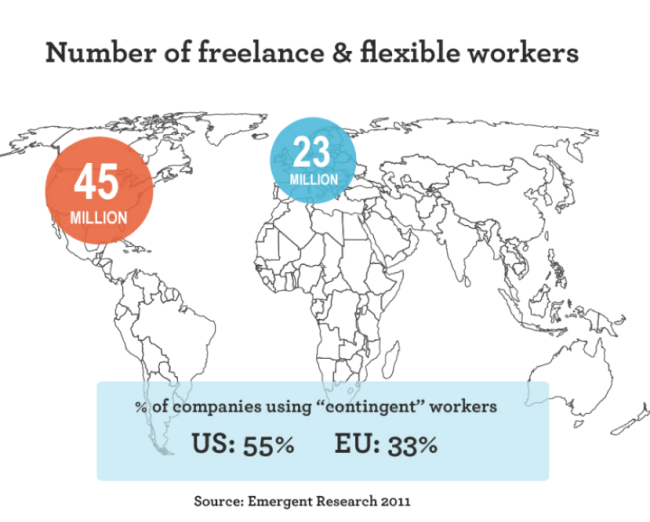Berlin is a big city by its area. It is much less dense built than other very populated capitals of Europe – like London or Paris, for instance. That means, that in comparison with its population the distances are long – and the infrastructure is, well, rather unfinished. People in Berlin are also very mobile. In fact, 88 percent of the people move between different city districts on a regular workday. These people make an average of 3,4 trips within the city daily, and spend around 70 minutes a day on the road – walking, on the public transport, bicycling or driving. Choosing your means of transportation, however, is not a random coincidence. Your vehicle is a part of your image – it’s a statement, an outlook on life, an opinion about the state of the world. It is about being green or not.
Obviously, bicycling has become the ultimate embodiment of a nature-conscious and sustainable city boy or girl. In comparison with Amsterdam or Copenhagen, Berlin is still not a real bike-city. But the tendency is, that the popularity of bicycling increases continuously; between year 1992 and 2008, the amount of people driving to work with bicycles increased from only 7% to 13%. Even though walking or running would actually be much more ecological – there’s no need for a lightweight aluminium framework production in that – bicycling has overtaken the status of the über-coolest mode of transport. The faster, more beautiful, exquisite retro fixie-bike one has – the more hip and Berlin one is.
But lets not forget, that even though people stubbornly state otherwise, Berlin is still located in Germany – the cradle of profitable automobile industry, respected car brands and autobahn of unlimited speed. It means, there are a few Auto-people in Berlin as well. Therefore, in the everyday traffic there is an encounter of two cultures: the eco-people on their bikes and the nature-spoilers in their cars. And it is not just the ecological aspect that seems to divide these two groups. Biking seems to stand for youthfulness, whereas car driving is for the fifty-somethings. In addition, biking is very Berlin, whereas car driving represents the origin of the German car industry, the German south – and an average Berliner really doesn’t like Bayern.
So there is a continuous struggle of power on the streets of Berlin. Sadly, this encounter actually happens in the traffic. And because it can’t be very verbal – as the car driver is fortified in his Mercedes squatted by the loud Schlager from the radio – the struggle has to be fought in the means of physical capture. Who gets the pole position at the traffic light, is the winner.
Everybody knows, that this kind of powerplay can only end up bad. And in particular, bad for the bicyclist. Too many times as I’ve been driving my bike I’ve also been overwhelmed by the risks that the car drivers take. I have been cut in on the street in order to be left behind in the traffic light line. I have been almost run over because somebody looked out if there are cars coming – but not bicycles. I have got a concussion and a memory loss because somebody in a parked car opened the door to the street right infront of me. And I’m not saying, that all the car drivers drive bad or don’t look out for the bicycles. Surprisingly, many of them actually do. But if only, lets say, a fifth of them don’t, it ends up with way too many dangerous situations a day. Sometimes it is about the bicyclist not following the rules. Nevertheless, given the circumstances, I think nobody enjoys an accident in the traffic, and therefore driving a car over somebody is not a way how you educate people about traffic rules.
Every four minutes the Berlin police gets a call for a traffic accident. Every 31 minutes somebody gets hurt. Every two hours a biker gets hurt. At this point, you would think, that it is because the bikers drive like crazy with their fast bikes. Well then, think again. In 2012, of all the traffic accidents in Berlin, altogether three percent were caused by bicyclists. This can be compared with 70,72% – the number how many of the accidents were caused by car drivers. But when you look at the figures of how many people were actually killed in traffic accidents, they speak for themselves. 35,71% of all people killed were bicyclists. 40,48% were pedestrians (who actually only caused 1,03% of all the accidents). It is pretty easy to do the math.
But that is what many people in the traffic don’t understand. The fact, that struggle of power, winning or being the king of the road are very insignificant things. Even if a car driver would actually know he is right, does that help to get yourself together when the fixie-bike is resting on the bonnet and the hipster driving it under the wheels? Worth of thought, I would say. And as long as the bicycle roots of Berlin are being developed – and as an urban planner I know it takes time – the two power players, the bikers and the motorists, will have to drive on the same lane.
There is one thing, however, in which the bicycles are always wrong. And that is not wearing a helmet. Cliché or not, it really does save your life. And after a 900 euro bike it really doesn’t even cost anything. But as said before, driving a bike is about coolness, and somehow coolness and stupidity go hand in hand in this case. But I guarantee, that it’s a nice moment to revive on the street noticing, your helmet broke into two halves and protected your skull of doing the same. At least you will get the chance of getting up and letting that car driver learn his lesson. Had I not lost my memory in my accident, I had surely done that. On the contrary, I am also happy to be educated in case I’m driving my bike against the rules of the road. But I hope to learn my lesson by means of verbal battle – not being run over. Because how can I do better next time if I’m already dead? Drive safely, people.
Sources:
Daten zum Berliner Verkehr, Kenndaten zur Mobilität by Senatsverwaltung für Stadtentwicklung Berlin: http://www.stadtentwicklung.berlin.de/verkehr/politik_planung/zahlen_fakten/download/Mobilitaet_dt_Kap-1-2.pdf
Verkehrssicherheitslage 2012 Berlin by Der Polizeipräsident in Berlin: http://www.berlin.de/imperia/md/content/polizei/strassenverkehr/unfaelle/statistik/verkehrssicherheitslage2012neu.pdf?start&ts=1366712042&file=verkehrssicherheitslage2012neu.pdf










